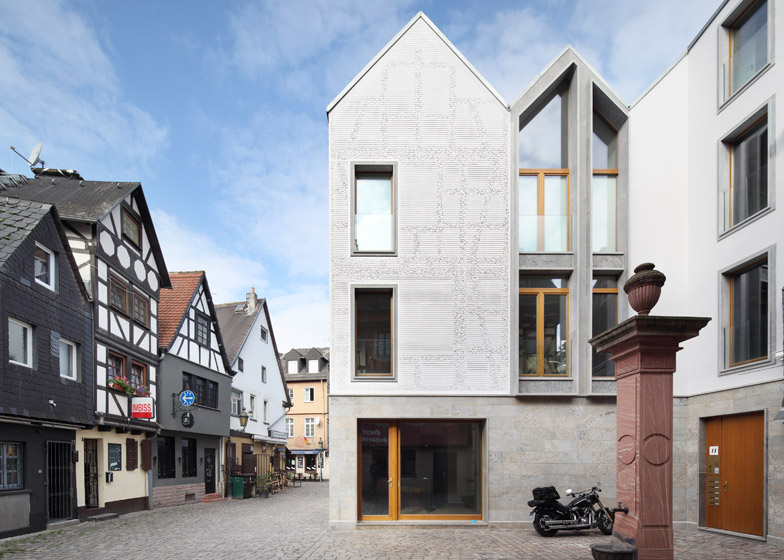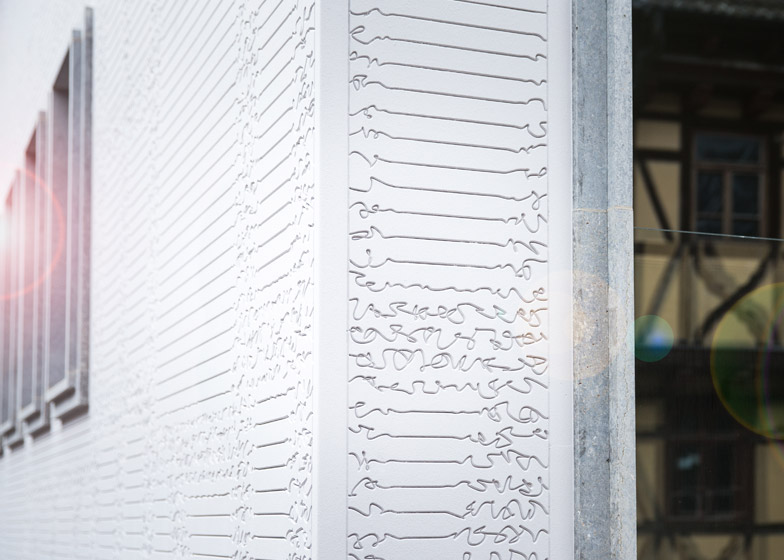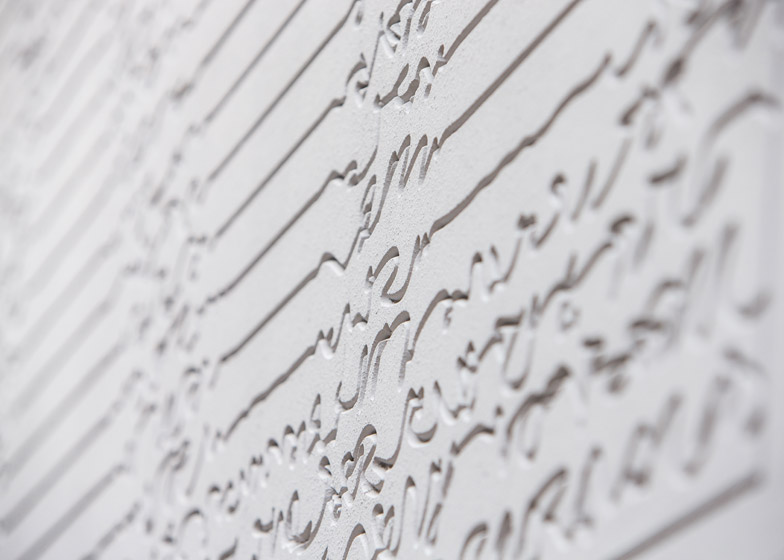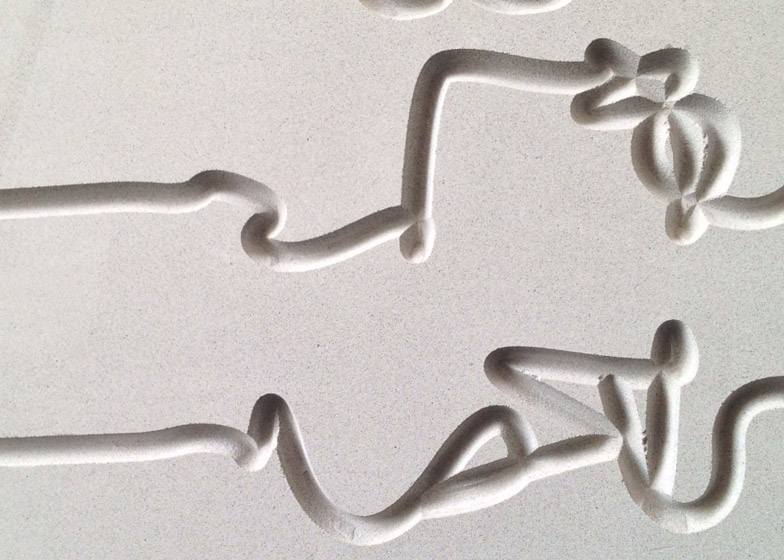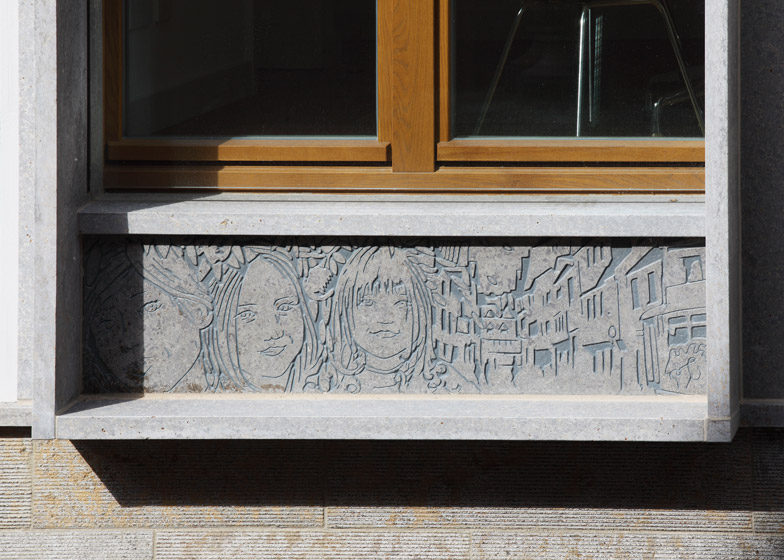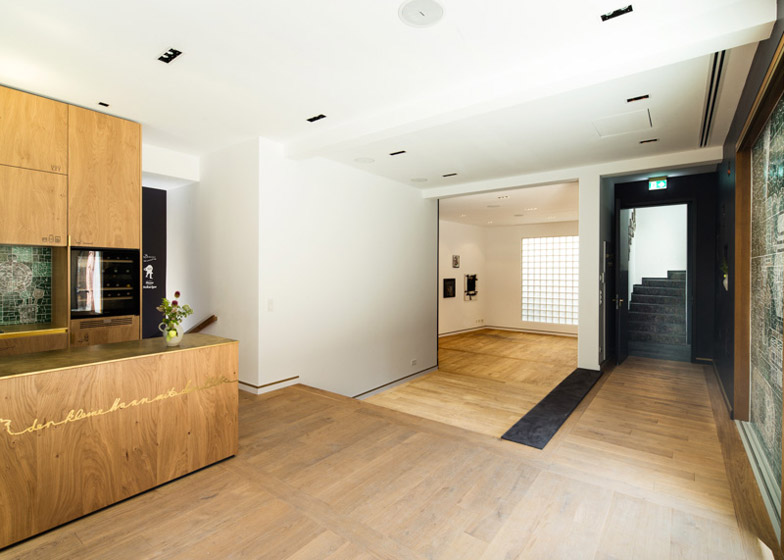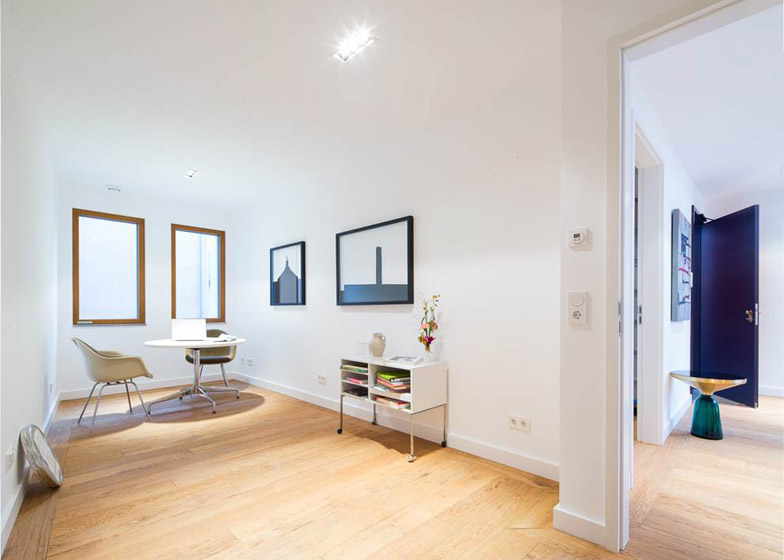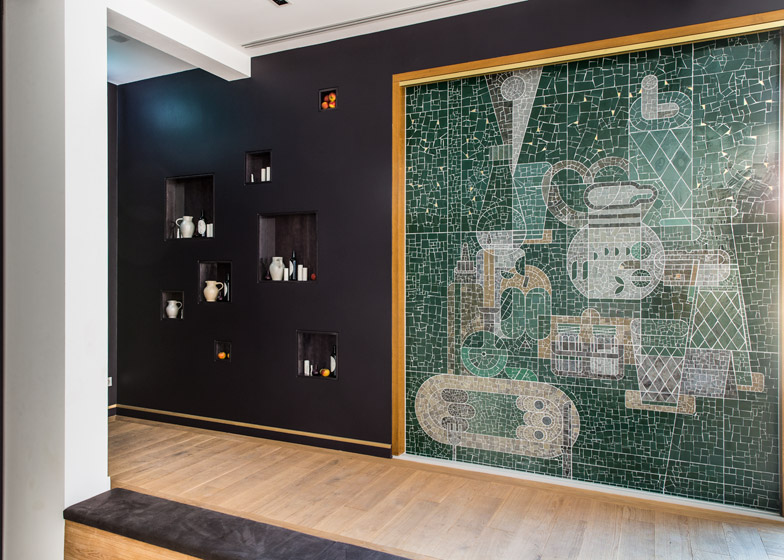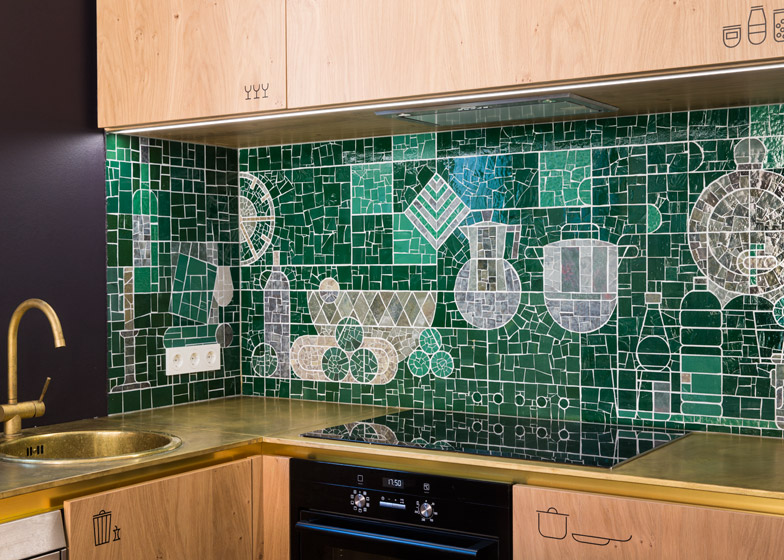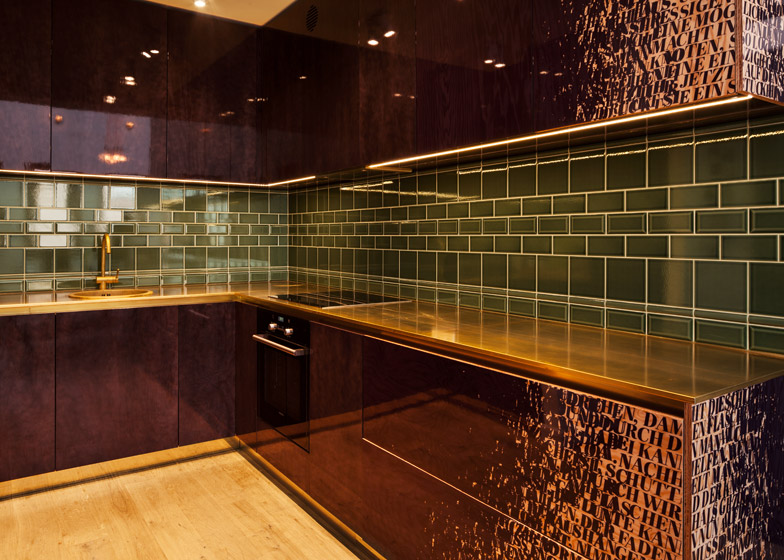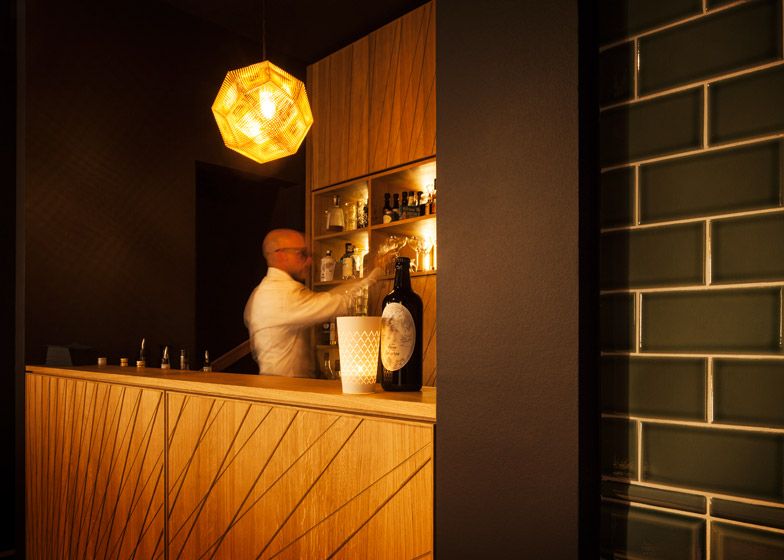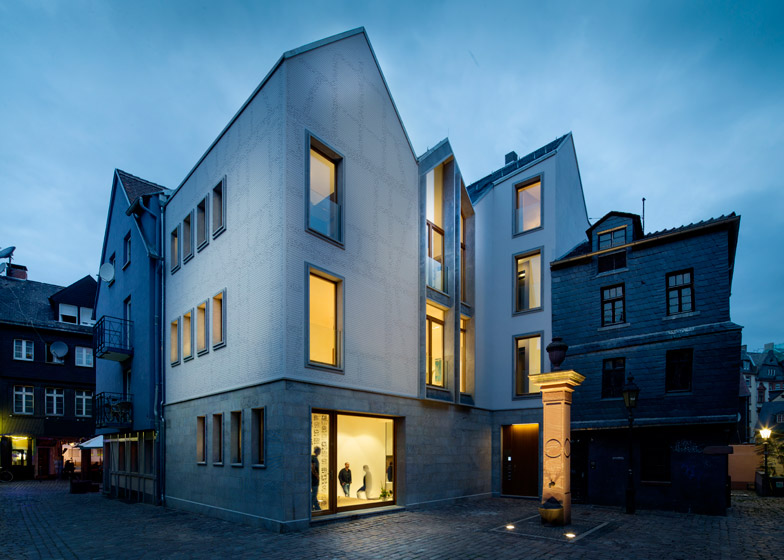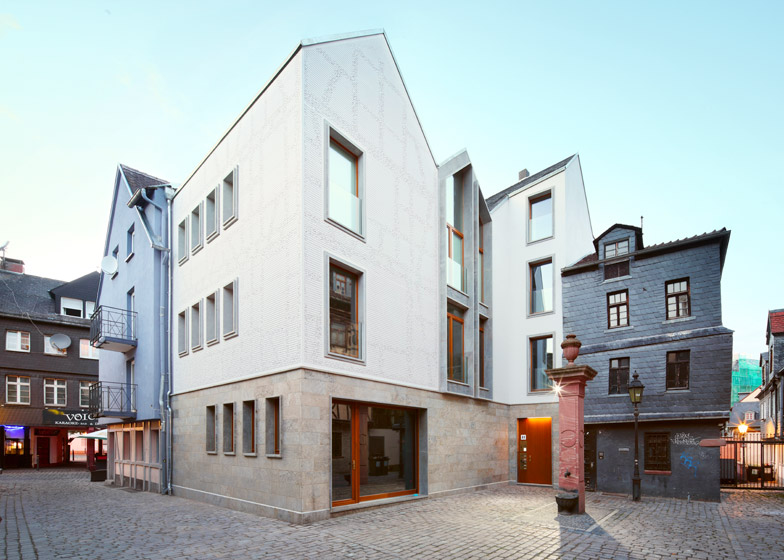German studio Franken Architekten milled a pattern of squiggly lines into the outer surface of this house and studio in Frankfurt's old town, replicating the outline of timbers from the building it replaced.
Franken Architekten was asked to oversee the renovation of a traditional building in the protected Sachsenhausen neighbourhood, but the discovery of dry rot in the existing framework meant it became too expensive and complicated to preserve.
The client and architect agreed to demolish the old building and develop a replacement that would be appropriate to the architectural style of the area.
The form of the original three-storey structure was copied and then simplified by removing a set of ornamental overhanging eaves from the pitched roofs.
To create a further link between the property's past and present, the architects developed a form of decoration that results in a ghost-like impression of a timber frame on the facade.
The pattern, which the architects described as an "afterimage", was based on scanned drawings of the original building.
Horizontal lines were carved into 144 plaster panels using a computer-controlled router. When the lines reached a point where there was a post or beam in the scan they generated a random wobble, creating a relief pattern that is more prominent when viewed from a distance.
Gaps between the panels were carefully filled in to create an apparently seamless surface that enhances the subtle contrast of light and shadow in the pattern.
"I find that when I'm on site looking at the building from a distance the image forms quite distinctly," said architect Bernhard Franken in a video produced by the studio, "and when I get nearer the whole thing slowly dissolves."
"The neat thing about it is that the whole effect is just caused by light and shadow," Franken added. "There's no line drawn there on the building, just more depth which, due to light, contrasts differently and only becomes visible that way."
Stone cladding was applied to the ground floor, with the intention of creating an additional visual connection with the neighbouring buildings.
A photography studio, office and apartments are accommodated within the property, which aims to recapture the traditional notion of families living and working in the same building.
The three-part structure, which also has modern details including raised window surrounds and contrasting wooden door and window frames, wraps around the corner of a cobbled courtyard.
Stone lintels below the windows feature detailed pictographic engravings that complement the more graphic pattern on the adjacent facade.
Project credits:
Planning/Interior Design: Franken Architekten
Project-Team: Bernhard Franken, Frank Brammer, Robin Heather, Natascha Baier, Kai Heyd, Felix Schneider, Isabel Strelow
Client: Rothenberger 4xS GmbH
Object Tracking: exact.projektmanagement / exitecture architekten
House technology planning: Schüler Elektro – und Informationstechnik
Statics & Fire Protection / Building Physics: Tichelmann & Barillas Ingenieure
Electrical work: BBK Elektroanlagen GmbH
Roof covering and roof sealing work/carpentry/plumbing works: Weyershäuser GmbH Dachdeckermeisterbetrieb
House technology: Köhler Haustechnik GmbH
Structural work: Kuehnbau GmbH
Windows and external doors: OST Bau und Möbel Schreinerei GmbH
Facade/EIFS - interior plaster: Helmut Lindt GmbH
Natural stone work: DK Steintechnik GmbH


